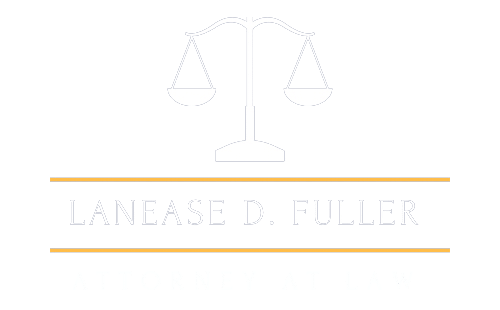Estate planning is often perceived as a task that only the wealthy need to consider or something that can be postponed until later in life. However, this couldn’t be further from the truth. Estate planning is a crucial process for everyone, regardless of the size of their estate or age. It is about more than just distributing assets after death; it’s about making decisions that protect your interests, your loved ones, and your legacy while you’re still alive. In this blog post, we’ll explore how estate planning can protect you in your later years and why it’s essential to start the process sooner rather than later.
Understanding Estate Planning
Estate planning involves creating a comprehensive strategy to manage and distribute your assets in the event of death or incapacitation. This includes drafting legal documents such as wills, trusts, powers of attorney, and healthcare directives. These documents ensure that your wishes are carried out, your assets are protected, and your loved ones are taken care of according to your preferences.
One of the most significant aspects of estate planning is that it provides you with control over your affairs even when you’re no longer able to make decisions yourself. Without a proper estate plan, your assets could be subject to state laws, which may not align with your wishes. Furthermore, it could lead to unnecessary stress and conflict among your family members during an already difficult time.
Protecting Your Financial Interests
One of the primary benefits of estate planning is the protection of your financial interests. As you age, the risk of health issues and cognitive decline increases, which can make managing finances more challenging. A well-structured estate plan can ensure that your assets are managed according to your wishes even if you’re no longer capable of doing so yourself.
Power of Attorney:
A Power of Attorney (POA) is a legal document that allows you to appoint someone you trust to manage your financial affairs if you become incapacitated. This person, known as your agent, will have the authority to pay your bills, manage your investments, and make other financial decisions on your behalf. Without a POA in place, your family may need to go through a lengthy and costly court process to gain control of your finances, which could leave your assets vulnerable to mismanagement or exploitation.
Trusts:
Trusts are another powerful tool in estate planning. They allow you to transfer ownership of your assets to a trustee, who manages them according to the terms you’ve set out. Trusts can be particularly beneficial for protecting your assets from creditors, avoiding probate, and ensuring that your wealth is distributed according to your wishes. They can also be used to provide for your care if you become incapacitated, ensuring that your needs are met without exhausting your estate.
Ensuring Your Healthcare Wishes Are Honored
In addition to protecting your financial interests, estate planning is crucial for ensuring that your healthcare wishes are respected. This aspect of estate planning involves creating documents like a Healthcare Power of Attorney and a Living Will, which outline your preferences for medical treatment in the event that you’re unable to communicate them yourself.
Healthcare Power of Attorney:
A Healthcare Power of Attorney allows you to appoint someone to make medical decisions on your behalf if you’re unable to do so. This person will be responsible for ensuring that your healthcare wishes are followed, whether it’s choosing a treatment plan, selecting healthcare providers, or making decisions about life-sustaining measures. By appointing a trusted individual to this role, you can have peace of mind knowing that your medical care will be managed according to your preferences.
Living Will:
A Living Will, also known as an advance directive, is a document that outlines your wishes regarding medical treatment in specific situations, such as end-of-life care. This can include decisions about resuscitation, life support, and other interventions. By having a Living Will in place, you can prevent confusion and conflict among your loved ones, ensuring that your wishes are honored during difficult times.
Minimizing the Impact of Estate Taxes
Another critical aspect of estate planning is the potential to minimize estate taxes, which can significantly reduce the amount of wealth you pass on to your heirs. Estate taxes are imposed on the transfer of your assets upon death, and they can be substantial, depending on the value of your estate.
Gifting Strategies:
One effective strategy to reduce estate taxes is through gifting. By giving assets to your heirs while you’re still alive, you can reduce the overall value of your estate and potentially lower the estate tax burden. The IRS allows individuals to gift a certain amount each year without incurring gift taxes, making this a valuable tool for estate planning.
Irrevocable Trusts:
Irrevocable trusts can also be used to minimize estate taxes. When you place assets into an irrevocable trust, they are removed from your estate, which can reduce your estate tax liability. These trusts can be particularly useful for individuals with substantial assets, as they provide both tax benefits and protection from creditors.
Protecting Your Legacy
Estate planning isn’t just about managing finances and healthcare; it’s also about protecting your legacy. This involves ensuring that your assets are distributed according to your wishes and that your values are preserved for future generations.
Wills and Beneficiary Designations:
A will is a fundamental document in any estate plan. It allows you to specify how your assets should be distributed after your death, appoint guardians for minor children, and name an executor to manage your estate. Without a will, your estate will be distributed according to state laws, which may not align with your wishes.
In addition to a will, it’s important to review and update your beneficiary designations on accounts such as life insurance policies, retirement plans, and bank accounts. These designations take precedence over your will, so it’s crucial to ensure that they reflect your current wishes.
Charitable Giving:
For those who wish to leave a lasting impact, charitable giving can be an essential part of estate planning. By including charitable donations in your estate plan, you can support causes that are important to you while also potentially reducing your estate tax liability. There are various ways to incorporate charitable giving into your estate plan, such as through charitable trusts or by naming a charity as a beneficiary of your assets.
Planning for Long-Term Care
As life expectancy increases, the need for long-term care has become a significant concern for many people. Long-term care can be incredibly costly, and without proper planning, it can quickly deplete your assets. Estate planning can help you prepare for these costs and ensure that you receive the care you need without compromising your financial security.
Long-Term Care Insurance:
One option to consider is long-term care insurance, which can help cover the costs of care in a nursing home, assisted living facility, or in-home care. By including long-term care insurance in your estate plan, you can protect your assets and reduce the financial burden on your family.
Medicaid Planning:
Medicaid is a government program that provides healthcare coverage for individuals with limited income and resources. However, to qualify for Medicaid, you must meet certain financial requirements. Estate planning can help you structure your assets in a way that allows you to qualify for Medicaid while preserving your wealth for your heirs. This process, known as Medicaid planning, is complex and requires careful consideration, but it can be a valuable tool for protecting your assets and ensuring that you receive the care you need.
The Peace of Mind That Comes with Estate Planning
Estate planning is a powerful tool for protecting yourself and your loved ones in later life. By taking the time to create a comprehensive estate plan, you can ensure that your financial and healthcare wishes are respected, minimize the impact of estate taxes, and protect your legacy for future generations. Moreover, estate planning provides peace of mind, knowing that you’ve made the necessary arrangements to secure your future and the well-being of your family.
This peace of mind is invaluable, especially as you approach your later years when the potential for health issues, cognitive decline, or unexpected life changes becomes more prevalent. With an estate plan in place, you can rest assured that you have made thoughtful decisions about your care and finances, reducing the burden on your loved ones and preventing potential disputes. An estate plan is not just a set of documents; it’s a comprehensive approach to safeguarding everything you’ve worked hard for, ensuring that your wishes are honored, and that your loved ones are provided for according to your intentions.
If you haven’t yet started the estate planning process, now is the time to do so. Contacting an experienced estate planning attorney like Lanease D. Fuller can help you navigate the complexities of estate planning and create a plan tailored to your unique needs and goals. Don’t wait until it’s too late—start planning today to protect yourself in later life and secure the future for those you care about most. Your peace of mind, and that of your family, is worth every moment spent in planning.
LANEASE D. FULLER LAW
4615 S. Frwy St. 820
Houston, TX 77051
713-439-7400
Google Listing


